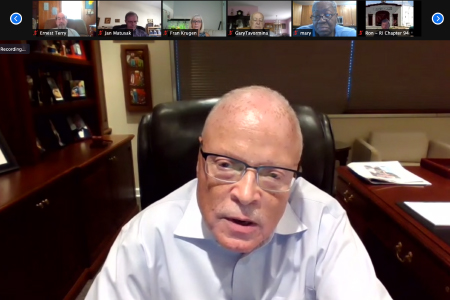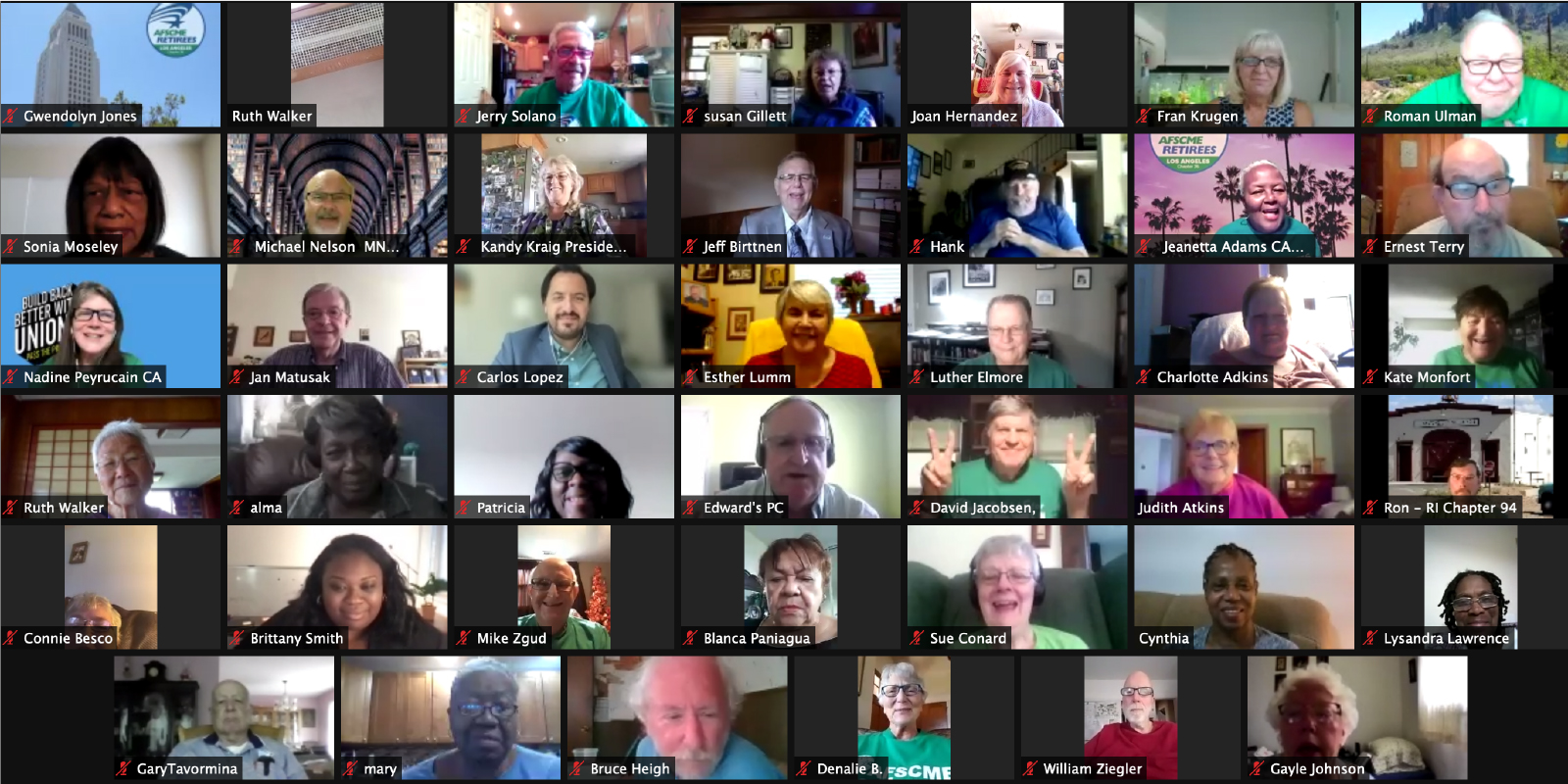
If there is an age when it’s too late to try new things, don’t tell that to AFSCME retirees.
The AFSCME Retiree Council held its annual meeting along with a lobby day this year, but instead of in-person conversations at their elected representatives’ offices in Washington, D.C., members were forced to make their case virtually because of the pandemic. And yet the technology-dependent event turned out to be a minor obstacle that did not interfere with their ability to make their voices heard.
AFSCME retirees from across the country participated in the virtual event, held Monday and Tuesday of this week. They met with members of Congress, urging them to repeal the Windfall Elimination Provision (WEP) and Government Pension Offset (GPO) that jeopardize income security for some public sector workers by unfairly lowering their earned Social Security benefits.
They also made their voices heard loud and clear on the need for bold legislation requiring the federal government to negotiate lower drug prices for all, not just retirees on Medicare. Huge drug company profits are the primary drivers of soaring prescription drug prices in our country.
“There are many, many families where people are having to work longer or having to work more than one job in order to just meet their medication needs,” says Esther Durán Lumm, a member of Arizona Retiree Chapter 97, who was diagnosed with type 2 diabetes. “We want to talk to people in Congress and tell them they need to not just support but champion these issues and get these drug costs down.”
Ed Keefe, a former Boston municipal employee who is president of New England Retiree Chapter 93, said repealing WEP and GPO is absolutely necessary for seniors to receive the Social Security earnings they worked hard for during their careers.
“GPO is an exceptionally punitive law,” Keefe says. “It takes money away from a person when their spouse dies. You could lose up to 75% of your benefits, and for no reason. Most of the people that suffer under this law are women.”
The GPO-WEP provisions unfairly penalize approximately 25% of public workers. In December 2020, about 1.9 million people (or about 3% of all Social Security beneficiaries) were affected by the WEP and 716,662 Social Security beneficiaries (or about 1% of all beneficiaries) had spousal or survivor benefits reduced by the GPO.
In 2021, Sen. Sherrod Brown (D-Ohio) and Rep. Rodney Davis (R-Ill.), with bipartisan support in the Senate and House, introduced the Social Security Fairness Act (S. 1302, H.R. 82) to fully repeal both the GPO and WEP. AFSCME endorses this legislation.
Alma Wingard, a former employee of the Chicago Public Library and treasurer of Illinois Retiree Chapter 31, is directly affected by these unfair provisions.
“They’re taking away our earned benefits,” she says. “The WEP and GPO offsets, they lower your earned Social Security benefits. I am a widow, and the Social Security that I should have received when my husband passed away, I get none of that because I have a pension. It should not be. I have a house that came from a two-family income but now I have to survive on one income because the Social Security that I should have been receiving from my husband, they told me no.”
AFSCME President Lee Saunders said it is “nothing short of outrageous” that retired public service workers and others are “cheated out of benefits they deserve simply because they have a pension and other earnings.”
Saunders praised AFSCME retirees for their relentless activism and never-quit spirit, which in the last year has made possible the election of President Joe Biden and Vice President Kamala Harris as well as passage of the American Rescue Plan (ARP), among other things. He added that our union will rely on retirees as our union continues to advance a pro-worker agenda.
“Just as you helped us withstand the adversity of COVID and win the American Rescue Plan, your activism will be essential to meeting the long-term challenges we now face,” he said.
